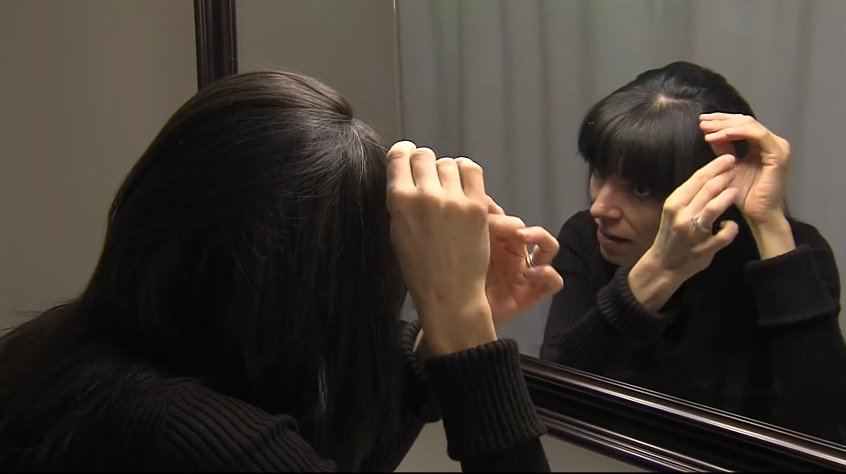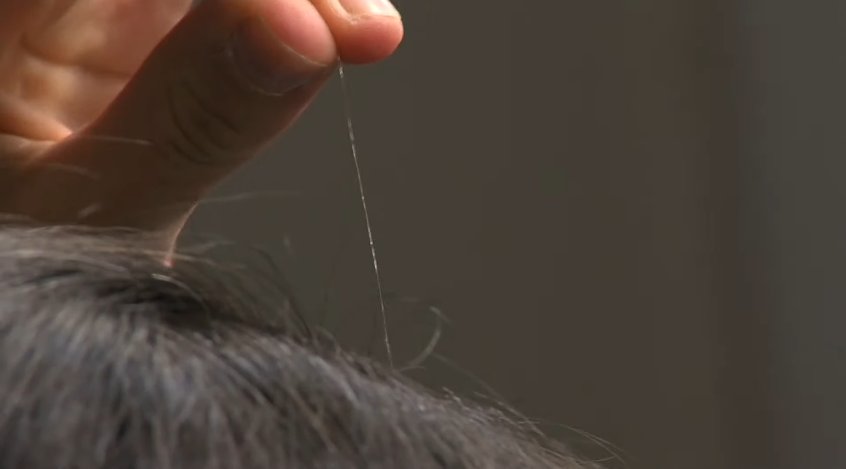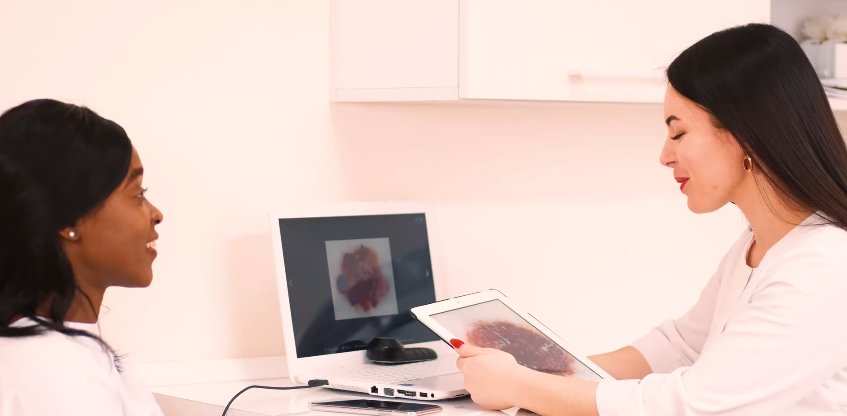Aging is a natural part of life, and while we embrace the wisdom and experiences that come with it, our hair often tells its own story of time passing. From graying strands to thinning volume, hair aging is one of the most noticeable signs of growing older. But what if you could maintain youthful, vibrant hair for longer? Understanding the role of oxidative stress in hair aging is a key step toward healthier, younger-looking locks.
What is Hair Aging?

Hair aging refers to the natural changes your hair undergoes as you grow older. These changes include:
- One of the most noticeable signs is graying, which happens as the pigment-producing cells (melanocytes) in hair follicles diminish, leading to a loss of color.
- Thinning is another common sign, where hair strands become finer, and overall density decreases, often giving hair a less voluminous appearance.
- Additionally, aging hair tends to become dry and brittle due to reduced oil production in the scalp, which can make it more prone to breakage and split ends.
- Another characteristic of hair aging is reduced growth, as the hair follicle cycle slows down, resulting in less frequent and thinner hair regrowth.
These changes are influenced by a combination of genetics, hormonal shifts, and environmental factors such as oxidative stress, making hair care and a healthy lifestyle essential to maintaining youthful locks.
The Role of Oxidative Stress in Hair Aging
Oxidative stress occurs when there is an imbalance between free radicals and antioxidants in your body. Free radicals are unstable molecules that can damage cells, including those in your hair follicles. This damage impacts hair health and accelerates the aging process.
Factors that contribute to oxidative stress include:
- UV Radiation: Sun exposure generates free radicals that weaken hair strands and damage the scalp.
- Pollution: Environmental pollutants can clog follicles and increase free radical production.
- Poor Diet: A lack of antioxidants in your diet reduces your body’s ability to fight oxidative stress.
- Smoking: Smoking is a major source of free radicals, which harm hair and skin cells.
- Stress: Chronic stress elevates cortisol levels, indirectly promoting oxidative damage.
How to Combat Hair Aging and Oxidative Stress

Here are practical strategies to keep your hair looking youthful:
1. Adopt a Hair-Friendly Diet
Eating a diet rich in antioxidants can help neutralize free radicals and protect hair follicles. Include these in your meals:
- Vitamin C: Found in citrus fruits, strawberries, and bell peppers.
- Vitamin E: Present in nuts, seeds, and spinach.
- Omega-3 Fatty Acids: Found in fish like salmon, as well as flaxseeds and walnuts.
- Biotin: Essential for hair growth, found in eggs, almonds, and sweet potatoes.
2. Protect Your Hair from UV Damage
Shield your hair from harmful UV rays by wearing a hat or scarf when outdoors. Use hair products with built-in UV protection to prevent damage, dryness, and color fading. Regular care protects your strands and scalp, ensuring healthier, youthful hair even under the sun.
3. Use Antioxidant-Rich Hair Products
Look for shampoos, conditioners, and serums containing ingredients like:
- Green tea extracts
- Argan oil
- Vitamin E
These antioxidants combat free radicals, protect hair follicles, and promote stronger, healthier strands. Regular use helps reduce damage caused by oxidative stress, keeping your hair vibrant and youthful.
4. Avoid Harsh Chemical Treatments
Reduce the use of chemical dyes, bleaches, and heat styling tools to prevent damage and oxidative stress. Opt for ammonia-free or natural hair dyes, and prioritize gentle styling methods to protect your hair’s strength and vitality. Treat your hair kindly for healthier, youthful-looking strands over time.
5. Quit Smoking and Reduce Stress
Smoking generates free radicals that harm hair follicles, accelerating aging. Quitting not only benefits your overall health but also supports hair vitality. Similarly, managing stress through yoga, meditation, or exercise reduces cortisol levels, protecting your hair from thinning and breakage while promoting a healthier scalp.
6. Hydrate Your Scalp
A well-hydrated scalp is essential for healthy hair growth and preventing dryness. Use nourishing oils like coconut or jojoba oil, or opt for moisturizing hair masks. Regular scalp hydration improves circulation, reduces flakiness, and promotes a balanced environment for strong, vibrant hair. Don’t overlook this key to youthful locks!
Professional Treatments for Youthful Hair

In addition to home remedies, you might consider professional treatments to counteract the effects of aging on your hair:
- Scalp Microneedling: Stimulates collagen production to support follicle health.
- Platelet-Rich Plasma (PRP) Therapy: Uses your blood’s growth factors to rejuvenate hair follicles.
- Laser Therapy: Low-level laser therapy enhances blood flow to the scalp, promoting hair growth.
Final Thoughts
While you can’t stop time, you can certainly slow down the visible effects of hair aging by addressing oxidative stress. By combining a healthy lifestyle, proper hair care, and the right products, you can keep your hair looking vibrant, strong, and youthful for years to come. Embrace these changes with confidence—your best hair is just a routine away!
Read also: Nourish Hair From The Inside Out For Stunning Locks